#rural political engagement
Explore tagged Tumblr posts
Text
BJP Rural Committee Holds Meeting in Ghatsila
Party leaders discuss upcoming programs, honor newly appointed officials The BJP’s rural district committee convened a meeting to plan future activities and recognize new appointees. JAMSHEDPUR – The BJP rural district committee held a meeting at a hotel in Ghatsila, chaired by district president Chandi Charan Sao, to discuss upcoming programs and honor newly appointed officials. The meeting…
#जनजीवन#BJP Ghatsila meeting#BJP grassroots strengthening#BJP rural committee#Chandi Charan Sao BJP#East Singhbhum BJP#Independence Day celebrations BJP#Jamshedpur political news#Jharkhand BJP activities#Life#rural political engagement#Tiranga Yatra Jamshedpur
0 notes
Text

"National Panchayati Raj Day" #trending#viral#manasadefenceacademyNational Panchayati Raj Day and why it holds such importance in the development of rural India. National Panchayati Raj Day is celebrated annually on April 24th to commemorate the establishment of Panchayati Raj System in India. The Panchayati Raj System plays a crucial role in decentralizing power to the grassroots level, empowering local communities, and promoting participatory decision-making processes. Join us as we explore the history, evolution, and impact of National Panchayati Raj Day in shaping the governance structure of our country.
Call : 77997 99221
Website : www.manasadefenceacademy.com
#nationalpanchayatirajday #panchayatirajsystem #ruraldevelopment #governance #localgovernment #grassrootsempowerment #participatorydecisionmaking #indianpolitics #villageadministration #powerdecentralization #nationalcelebration #indiangovernment #communityengagement #publicpolicy #ruralindia #governancestructure #goodgovernance #politicalreform #ruralempowerment #civicengagement
#National Panchayati Raj Day#Panchayati Raj System#Rural Development#Governance in India#Local Government#Grassroots Empowerment#Participatory Decision-making#Indian Politics#Village Administration#Decentralization of Power#National Celebration#Indian Government#Community Engagement#Public Policy#Rural India#Governance Structure#Good Governance#Political Reform#Rural Empowerment#Civic Engagement
0 notes
Text
yes
#leaving a chunk of my psych eval on a james spader gifset post is exactly what i wanted to do#if those tags looked like a lot this psychiatrist was infamous for writing letters to the local newspaper in service of#his political engagements and wording things in the most complicated academically obtuse language he knew to#(for a v rural non-academic audience too) so it was hard to know wtf he was even talking abt.#but two bits from his psych eval were like the most and only on-point thing anyone from mental health ever said abt me so#that was v nice of him#the gist of it is... my presentation doesn't produce anything helpful in any concrete way.............#i should do it justice and translate it properly it's so james spader too lmaooo i love him 🖤#something Halting-Laborious-Unclear 🙏#if i had a german url it would be kompliziert-fehlende-entaeusserungsfaehigkeit
0 notes
Text
Blue states should play “constitutional hardball”

NEXT WEDNESDAY (October 23) at 7PM, I'll be in DECATUR, GEORGIA, presenting my novel THE BEZZLE at EAGLE EYE BOOKS.

Nothing's more frustrating that watching the GOP smash norms and decency to advance policies that harm millions of Americas, unless it's that, plus Democratic officials stamping their feet and saying, "C'mon guys, play fair."
The GOP's game is called "constitutional hardball." Think: Mitch McConnell refusing to hold confirmation hearings on Obama's federal judiciary appointments, not never for Merrick Garland's Supreme Court seat – then filling the Federal judiciary with the least-qualified, most FedSoc-addled lunatics in US history, all for lifetime appointments.
As bad as this is at the federal level, it's even worse at in the states, especially the Republican "trifecta" states where the GOP holds the governorship and the state house and senate, where shameless gerrymandering and legislative attacks on hard-won ballot measures are the order of the day. GOP-held state governments engage in rampant interstate aggression, targeting out-of-state abortion providers, publishers, and journalists.
This is a one-sided Cold Civil War, because state Dems, for the most part, are unwilling to play hardball in return (the closest they come is when, say, California sets strict emissions controls and manufacturers adopt them nationwide, rather than making special cars for the giant California market). Republicans engage in constitutional hardball and Dems refuse to fight back, a phenomenon called "asymmetrical constitutional hardball":
https://columbialawreview.org/content/asymmetric-constitutional-hardball/
Writing for The American Prospect, Arkadi Gerney and Sarah Knight make the case for symmetrical constitutional hardball:
https://prospect.org/politics/2024-10-18-playing-hardball/
The pair argue first, that the best way to get Republican state houses to play fair is to credibly threaten them with retaliatory action. They cite the recent attempt at a last-minute change the way that Nebraska's Electoral College votes are apportioned, which would have given all of five the state's EC votes to Trump. Maine threatened to effect the same change to its Electoral College system, which would have given all four of its EC votes to Harris. Nebraska surrendered.
But there's also a second advantage to playing Constitutional Hardball: it makes blue states better. For example, Minnesota gives free college tuition to exceptional low/middle-income students. Neighboring North Dakota got tired of losing all its smartest kids Minnesota schools and created its own subsidy. As Gerney and Knight point out, Minnesota (and other blue states) still has a huge advantage when it comes to attracting top talent, because attending university in a state with legal abortion is vastly preferable (and safer) than doing a degree in a forced-birth state.
Red states are bent on making life horrible for some really great people. The hardworking, talented Haitian migrants caught in the Springfield pogroms that Trump incited would be a fine addition to any blue state town – anyone who's got the gumption to haul ass out of a failed state and make their all the way to Springfield is gonna be a fantastic neighbor, citizen and worker, just like my refugee grandparents and father, who endured a million times more hardship than their neighbors ever did, getting to Toronto, finding jobs, and starting their family.
Influxes of young, hardworking immigrants are especially good for rural towns with dwindling populations. No wonder rural towns with above-average net migration swung for Biden in 2020.
All over America, families are despairing of their lives in red states. Whether you're worried that you or someone you love might need to terminate a pregnancy, or you're worried about gender-affirming care for you or a loved one, you can put your worries to rest in a blue state. Same goes for nurses and doctors who are worried they can't do medicine unless it accords with the imaginary dictates of Bronze Age prophets as claimed by pencil-neck Hitler wannabe Bible-thumper with a private jet and a face from Walmart. Fill the blue states with great schools, libraries and hospitals, and invite everyone who wants to do their job in a free country to come and work at 'em. Line every state border with abortion and mifepristone clinics, and set up billboards advertising the quality of life, the jobs, and the freedom in blue state America.
Every blue state public pension fund should ban investments in fossil fuels, and invest like crazy in renewables, especially in Texas, to hasten the bankrupting of the petro-kleptocracy that controls the state. Blue states should tack surcharges on goods imported from "right to work" states where unions are effectively banned, to compensate for the additional product testing needed to ensure that scab products are safe to use (ahem, Boeing).
Create joint occupational licensure rules across blue states: if you're certified as a teacher, nurse, hairdresser or auto-mechanic in New York, you should be able to carry that certification with you to Minnesota, California, or Maine. Create multi-state funding pools to build public housing. Offer med-school scholarships to the smartest red state kids, at universities where they'll learn evidence-based obstetrics rather than the Lysenokist nonsense taught at the Roy Moore College of Pediatrics and Obstetrics.
Dems have to get over their fear of "states' rights" and start playing state-level hardball. This doesn't mean escalating cruelty. Quite the contrary: every cruel measure enacted as red state red meat is a chance for blue states to extend a kindness, and capture even more of the best, brightest and kindest of the nation, creating a race to the top that Republicans can only win by abandoning their performative cruelty and corruption.

Tor Books as just published two new, free LITTLE BROTHER stories: VIGILANT, about creepy surveillance in distance education; and SPILL, about oil pipelines and indigenous landback.


If you'd like an essay-formatted version of this post to read or share, here's a link to it on pluralistic.net, my surveillance-free, ad-free, tracker-free blog:
https://pluralistic.net/2024/10/18/states-rights/#cold-civil-war
#pluralistic#states rights#cold civil war#constitutional hardball#extraterritoriality#federalism#abortion#lgbtq
655 notes
·
View notes
Text
Platonic Yandere Priest x Child! GN! Reader
Content/Trigger warning: Mentions of death, violence, religion, and implied miscarriages. Also, please read as completely platonic.
- Yandere Priest who is devoted to their religion. They lead their believers with a firm, yet gentle hand towards a better life. Organizing community projects to strengthen the bond between the residents, giving inspiring and passionate lectures in every single one of their sermons, guiding from the youngest of youths to the aging elders through a path of righteousness (at least, what they have been taught as ‘righteous’), and holding banquets and festivals to help the less fortunate are but one of their few notable accomplishments through their time as the local priest, working and maintaining influence and a bit of authority in between the local business owners and police force. They have dedicated their lives to the prosperity of their flock and wouldn’t have it any other way. Yet, there is something missing…
- Yandere Priest has always wished for a child of their own. Regardless of the holy scriptures that have dictated, practically their entire life, they never really were too fond of the idea of engaging in a romantic, nor sexual, relationship with others, or anyone really. Perhaps it was due to their devotion to their faith that always kept them occupied, or they were simply born without a particular need or desire for such urges, regardless of the reason, they still crave a close connection with someone. Preferably someone who they can use all of their educational knowledge and life experience on, to provide them with and guiding them into a better, fulfilling life. They have tried to adopt before, but no matter what they did, they were never accepted as a possible parent candidate. With such disappointment, and with the passing of the years, they gave up on the search for such a pupil to follow on their steps, and simply continued to focus on their growing community of loyal followers. Maybe if they were gifted with a second chance at life, they would be able to fill the hole in their heart.
- Yandere Priest who can’t help but notice that a new family has joined their town. It’s not uncommon to see new people come and go, especially when some of the young adults come back to settle down with their families after experiencing the busier city life and preferring to embrace their more rural roots. They were hoping for the new family to be pleasant and kind, already preparing a basket of local fruits and sweets to welcome them to the community, and to offer them an invitation to the weekend sermon. They wouldn’t dare to be too forceful though, they’ve learned their lesson from their previous teacher who had the inept belief of forcing newcomers into their religion would surely increase the church’s congregation (they are very happy they were able to ‘talk some sense’ into them).
- Yandere Priest who happily chats with the happy couple when they go to visit them and even offer their help with the moving, who amidst the conversation catch a glimpse of a tiny child, you. They can’t help but find you adorable as you shyly clutch your parent leg while peeking at them from behind. Your parents enthusiastically introduce you to them, of course, and explain that you aren’t very fond of strangers. However Yandere Priest doesn’t mind such display of nervousness, as they simply kneel with one leg while warmly smiling at you and introducing themselves.
“Pleasure to meet you, little one. I’m the local priest in this town”
“… Hi…”
“There’s no need to be afraid, young one. For I promise I wouldn’t dare to harm a single hair in your head”
“…”
- Yandere Priest realizes that they went a bit too far with the presentation, and politely excuses themselves from the talk, with your parents bidding them farewells and promising to assist to the weekend sermon. As they walk away and greet the rest of the neighbors, they can’t help but think about the new family, possible new additions to the congregation, and… you. You are an adorable, shy little thing, probably terribly scared from the new change of scenery and pretty much uprooting of your previous life into a completely new setting that, most likely, you’ve never heard off before. Their community is a tad far away from the major cities, so they wouldn’t be too surprised if you’ve ever only heard about your new home from memories from one of your parents.
- Yandere Priest who promises that they will be your guiding light into this new chapter of your life, whether you like it or not. Oh! Don’t worry too much about it! They have plenty of experience in subtly manipulating and getting their way by talking and stroking some egos. How did you think they were able to maintain their church and themselves with a high influence and status around the town? However they won’t take it too far, cutesy children like you only deserve the kindest, gentlest treatment ever, and they swear to their lord they will become your personal confidante and friend! They just need a few talks with you… =)
- Yandere Priest who is pleased to know that your parents fulfill their promise when they see you in their sermon. Your parents are actively socializing with the rest of the churchgoers (presumably to build some connections) and, just like when they first met you, you are shyly hiding behind your parent’s back, refusing to talk with the other children or adults. They understand your fear, it was difficult for them as well when they were first brought to the town when they were younger, their then teacher still forced them to toughen it up and interact with the townsfolk, but they are glad your parents won’t force you to interact with others if you do not wish to. They are so happy that they have something to bond over with you that they almost forgot to start their lecture on time!
- Yandere Priest whose lecture’s mainly focus on the struggle of the self when in a new and unknown situation. How the future might seen bleak or full of uncertainties, but how one can find solace within the support of those around them, accompanied by the desire of improving every day over the failures of the past. This, of course, being mostly centered around comforting and giving you hope in the face of the new life events you’ve suddenly been throw into, especially with the added knowledge that you can totally rely on them at any time, you know? Why, how could they dare to leave a lonely lamb alone among their new brethren? It’s their duty as the pastor to guide you to a more bright future.
- Yandere Priest who convinces your parents to sign you up to their weekly religion classes, which have existed since the very beginning and totally were not created on the spot as soon as the mass ended in order to get closer to you! They simply wish to help you grow into a more sensible and responsable person, and what better way than to learning about god and how important religion is? Yeah, Yandere Priest is so glad that your parents are very gullible and easy to sway with words alone, but they are more worried about you possibly inheriting such qualities and making you an easy target for con artists! It simply solidifies their ideal of nurturing you into a mature, capable adult, so as to not fuck your own life up!
- Yandere Priest who spends every week, plus some weekends whenever your parents are out on a date, simply getting to know you. They love hearing you talk about your interests, hobbies, favorite animals, favorite colors, foods, clothes, toys, and… pretty much anything you might or might not have an opinion on! They answer each and every one of your questions about their life, the town, their religion and the world with such calmness and eagerness to teach you, that you instinctively go to them whenever you have a doubt or question! They actively immerse you into the life of the town, either by helping or participating on the multiple events or projects they or the rest of the townsfolk cook up. They wish for you to have a vast and colorful upbringing, allowing you to interact safely with everyone in the community and broadening your horizons with each passing day.
- Yandere Priest who, outside of including you into any social event on the town, also enjoys small, quiet activities. From playing board games to simply reading books, any sort of bonding activity they or you can think of, they are more than happy to participate on. They just love you so much. They just want to crush your legs and make you a paraplegic so you can only rely on them for support! Oh, was that too extreme? No need to worry, that’s merely a fantasy, they would never act on such urges! Well, I mean, that could’ve been plan B if you happened to resist their efforts into getting to know you better from the very beginning. And about your parents? Do you remember how they have some authority over local police and the business owners? It wouldn’t be too hard to find some dirt on your parent’s past or to ask the landlord to raise rent or for the bank to mess up some of their finances… but like I said, they wouldn’t ever dare to do such a thing! Well, only if it was their last resort and your parents were… less than neighborly neighbors… Glad that isn’t the case, don’t you agree?
- Yandere Priest who will assert themselves as a stable support in your life against your will (not like you were willing to fight them, right?), especially when your parents ‘mysteriously’ go missing and are later found near the river as if a bear had mauled at them! They will also be there when, out of nowhere, loan sharks appear and start to demand compensation over some ‘gambling debts’ that your parent’s had ran away from years ago! But especially you will need them when you find the totally real letters and diary entries from your parents to the rest of your extended family about how they wished you were born dead or simply disappeared from their lives!
- Yandere Priest will always be there for you, even when everyone has left you. They will be your new guardian, so they can protect you from the corrupt foster care system of the country. They will become your teacher, trusted friend and loving parental figure so you’ll grow dependent on them for emotional support. They will make sure you love their hometown and consider it as your only place of residence from now on. Oh, how delighted they will be when you eventually succeed them as the new priest when they grow old and frail. But they know you’ll take care of them when such times come, and they know they will continue to protect you even in such a weakened state. It’s a promise, little angel =)
“I must give thanks to the lord for bringing me such a perfect child, whose kindness and beauty are akin to an angel, and who I’ll dutifully watch over for as long as my heart is able to beat. I’ll love you more than anything, my dear sunshine, so let’s finish today’s lessons, ok? =)”
#platonic yandere#yandere x reader#yandere x darling#yandere x y/n#yandere x you#yandere platonic#gn reader#gn!reader#x reader#yandere x gn reader#yandere x gender neutral reader#x y/n#platonic yandere priest#yandere platonic priest#yandere writing#x you#x gn y/n#x gn reader#tw: violence#tw: death#tw: religion#tw: miscarriage#cw: violence#cw: death#cw: religion#cw: miscarriage#x child reader#child reader
253 notes
·
View notes
Note
AAAAHHHHHHHH It's TIM! 1000% strong MN girl here and boy it's been real fun to watch Tim (and Peggy! Our amazing lieutenant governor) take a small small Democratic majority and do incredible things. My kid ate two meals at school every day for free. DELIGHTED that he's the VP pick. LET'S GOOOOOOOO!!!!
Listen, I am just ECSTATIC. Ever since I seriously became tuned into the veepstakes, he was my number one pick (I mean, I was not immune to the brief flirtation everyone had with Beshear/Buttigieg/etc), but yes. Walz was my top pick and I was trying desperately not to get my heart too set on him in case it fell through, but he was the obvious best choice of the contenders by a country mile. He has an almost absurdly Midwestern pro-America background (military veteran, public school teacher, football coach from a small rural town, etc) AND he has managed to enact a long list of progressive policies in Minnesota with a very narrow majority in the state legislature. Also, you're going to be seeing a lot of this video, for good reason:

Also.... let's be real, Shapiro would have been an incredible distraction/drag on the ticket, unfortunately. We don't need to deal with his retrograde views on Gaza and his other baggage, and while he is a very popular governor in Pennsylvania, it's less certain that his appeal would translate to other states. We can argue (or you know, let's not and move on) about whether or not that was fair, but this is just not the year to try to win the most critical high-stakes election ever by pissing off young voters. Shapiro has done plenty of good things and has time to develop his career further, but he would have been a BAD pick for 2024 and I was alarmed at how many Respected Pundits (tm) were pulling for him. Reuters even claimed that picking him would "defang Republican attempts to make Israel-Gaza a wedge issue for Democrats," which is such a mind-bogglingly stupid statement that it makes you wonder how anyone writing it actually got paid for their political insight, but it also explains a lot about mainstream media these days. Picking Shapiro would have been an absolute gift to the Republicans and bad-faith actors and others (plus like, I don't want to have to spend time winning back the young voters who are actually once more engaged in the process!) and would have led to the media eagerly jumping into the feeding frenzy (because they're desperate to have a reason not to cover Trump's increasingly crazy-ass shit) and other Democratic-on-Democratic infighting. And it goes without saying that WE CANNOT AFFORD THAT.
As well, picking Shapiro just because you need to win PA this election cycle is yet another example of why the Electoral College sucks, and the polling averages in PA have been moving solidly blue anyway. You can just park Shapiro there and have him campaign in the state as the sitting popular governor, rather than expose him to the liability of a nationwide campaign where, as noted, all the other stuff would be a drag. If it's true that the establishment was pushing Harris to pick Shapiro and she picked Walz instead, a) GOOD! and b) if anything, this election cycle needs to fucking teach us that we have got to stop going with the Conventional Wisdom Tee Em. Walz was already out there, he was already popular with the public/energizing the grassroots, AND he was the guy who coined the "Weird" attack line that is actually effective and organically popular against the Republicans and drives them batshit. So for Kamala to lean into that and take him as her running mate is... zomgz... smart, and I am not used to the Democrats playing smart and aggressive and not just passive-defensive. I don't understand. Wow.
Anyway, now watch the New York Times (and the others, lbr, but especially the NYT) desperately try to dig up scandalous stories about that time Walz didn't stop at the 4H booth at the county fair, or walked past someone without saying "Ope just gonna sneak by ya first" or some other terrible Midwestern sin, but fuck those guys. I am EXCITED I am ENERGIZED I am THRILLED. This is a GREAT new ticket that came together at incredibly short notice and completely changed the dynamics everywhere, Walz is gonna make JD Vance cry (unsure whether I want to see Harris demolish Trumpster or Midwestern Dad to turn the cranks on Weird Couchfucking Fascist Skidmark more, but both, both, both is good). LET'S GO GET THOSE WEIRD MOTHERFUCKERS, Y'ALL!!
HARRIS/WALZ 2024!
157 notes
·
View notes
Text
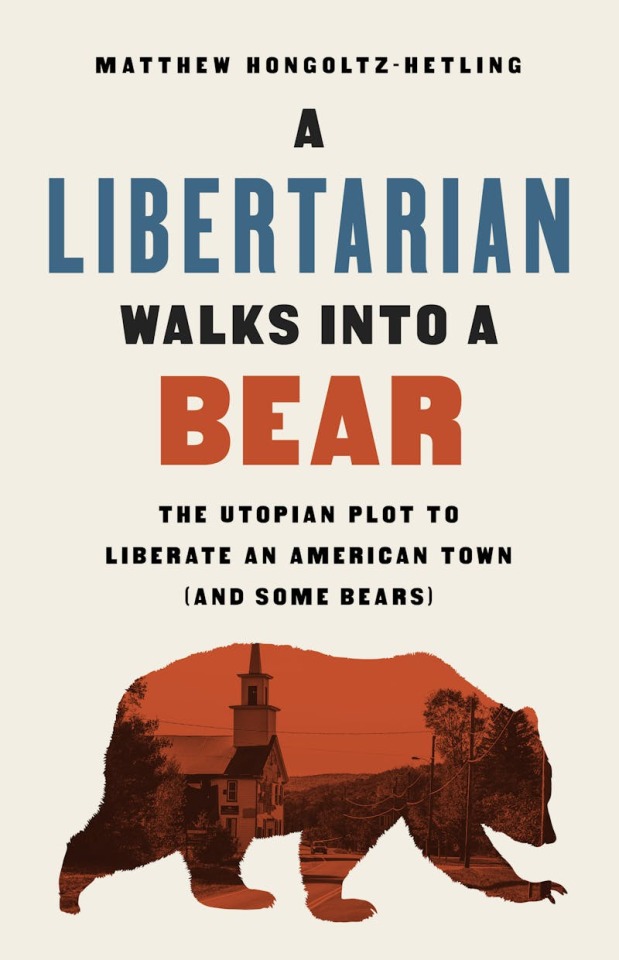
A Libertarian Walks Into a Bear: The Utopian Plot to Liberate an American Town (and Some Bears)
PublicAffairs, 288 pp., $28.00
But don’t worry—it almost never comes to this. As one park service PSA noted this summer, bears “usually just want to be left alone. Don’t we all?” In other words, if you encounter a black bear, try to look big, back slowly away, and trust in the creature’s inner libertarian. Unless, that is, the bear in question hails from certain wilds of western New Hampshire. Because, as Matthew Hongoltz-Hetling’s new book suggests, that unfortunate animal may have a far more aggressive disposition, and relate to libertarianism first and foremost as a flavor of human cuisine.
Hongoltz-Hetling is an accomplished journalist based in Vermont, a Pulitzer nominee and George Polk Award winner. A Libertarian Walks Into a Bear: The Utopian Plot to Liberate an American Town (and Some Bears) sees him traversing rural New England as he reconstructs a remarkable, and remarkably strange, episode in recent history. This is the so-called Free Town Project, a venture wherein a group of libertarian activists attempted to take over a tiny New Hampshire town, Grafton, and transform it into a haven for libertarian ideals—part social experiment, part beacon to the faithful, Galt’s Gulch meets the New Jerusalem. These people had found one another largely over the internet, posting manifestos and engaging in utopian daydreaming on online message boards. While their various platforms and bugbears were inevitably idiosyncratic, certain beliefs united them: that the radical freedom of markets and the marketplace of ideas was an unalloyed good; that “statism” in the form of government interference (above all, taxes) was irredeemably bad. Left alone, they believed, free individuals would thrive and self-regulate, thanks to the sheer force of “logic,” “reason,” and efficiency. For inspirations, they drew upon precedents from fiction (Ayn Rand loomed large) as well as from real life, most notably a series of micro-nation projects ventured in the Pacific and Caribbean during the 1970s and 1980s.
None of those micro-nations, it should be observed, panned out, and things in New Hampshire don’t bode well either—especially when the humans collide with a newly brazen population of bears, themselves just “working to create their own utopia,” property lines and market logic be damned. The resulting narrative is simultaneously hilarious, poignant, and deeply unsettling. Sigmund Freud once described the value of civilization, with all its “discontents,” as a compromise product, the best that can be expected from mitigating human vulnerability to “indifferent nature” on one hand and our vulnerability to one another on the other. Hongoltz-Hetling presents, in microcosm, a case study in how a politics that fetishizes the pursuit of “freedom,” both individual and economic, is in fact a recipe for impoverishment and supercharged vulnerability on both fronts at once. In a United States wracked by virus, mounting climate change, and ruthless corporate pillaging and governmental deregulation, the lessons from one tiny New Hampshire town are stark indeed.
“In a country known for fussy states with streaks of independence,” Hongoltz-Hetling observes, “New Hampshire is among the fussiest and the streakiest.” New Hampshire is, after all, the Live Free or Die state, imposing neither an income nor a sales tax, and boasting, among other things, the highest per capita rate of machine gun ownership. In the case of Grafton, the history of Living Free—so to speak—has deep roots. The town’s Colonial-era settlers started out by ignoring “centuries of traditional Abenaki law by purchasing land from founding father John Hancock and other speculators.” Next, they ran off Royalist law enforcement, come to collect lumber for the king, and soon discovered their most enduring pursuit: the avoidance of taxes. As early as 1777, Grafton’s citizens were asking their government to be spared taxes and, when they were not, just stopped paying them.
Nearly two and a half centuries later, Grafton has become something of a magnet for seekers and quirky types, from adherents of the Unification Church of the Reverend Sun Myung Moon to hippie burnouts and more. Particularly important for the story is one John Babiarz, a software designer with a Krusty the Klown laugh, who decamped from Big-Government-Friendly Connecticut in the 1990s to homestead in New Hampshire with his equally freedom-loving wife, Rosalie. Entering a sylvan world that was, Hongoltz-Hetling writes, “almost as if they had driven through a time warp and into New England’s revolutionary days, when freedom outweighed fealty and trees outnumbered taxes,” the two built a new life for themselves, with John eventually coming to head Grafton’s volunteer fire department (which he describes as a “mutual aid” venture) and running for governor on the libertarian ticket.
Although John’s bids for high office failed, his ambitions remained undimmed, and in 2004 he and Rosalie connected with a small group of libertarian activists. Might not Grafton, with its lack of zoning laws and low levels of civic participation, be the perfect place to create an intentional community based on Logic and Free Market Principles? After all, in a town with fewer than 800 registered voters, and plenty of property for sale, it would not take much for a committed group of transplants to establish a foothold, and then win dominance of municipal governance. And so the Free Town Project began. The libertarians expected to be greeted as liberators, but from the first town meeting, they faced the inconvenient reality that many of Grafton’s presumably freedom-loving citizens saw them as outsiders first, and compatriots second—if at all. Tensions flared further when a little Googling revealed what “freedom” entailed for some of the new colonists. One of the original masterminds of the plan, a certain Larry Pendarvis, had written of his intention to create a space honoring the freedom to “traffic organs, the right to hold duels, and the God-given, underappreciated right to organize so-called bum fights.” He had also bemoaned the persecution of the “victimless crime” that is “consensual cannibalism.” (“Logic is a strange thing,” observes Hongoltz-Hetling.)
While Pendarvis eventually had to take his mail-order Filipina bride business and dreams of municipal takeovers elsewhere (read: Texas), his comrades in the Free Town Project remained undeterred. Soon, they convinced themselves that, evidence and reactions to Pendarvis notwithstanding, the Project must actually enjoy the support of a silent majority of freedom-loving Graftonites. How could it not? This was Freedom, after all. And so the libertarians keep coming, even as Babiarz himself soon came to rue the fact that “the libertarians were operating under vampire rules—the invitation to enter, once offered, could not be rescinded.” The precise numbers are hard to pin down, but ultimately the town’s population of a little more than 1,100 swelled with 200 new residents, overwhelmingly men, with very strong opinions and plenty of guns.
Hongoltz-Hetling profiles many newcomers, all of them larger-than-life, yet quite real. The people who joined the Free Town Project in its first five years were, as he describes, “free radicals”—men with “either too much money or not enough,” with either capital to burn or nothing to lose. There’s John Connell of Massachusetts, who arrived on a mission from God, liquidated his savings, and bought the historic Grafton Center Meetinghouse, transforming it into the “Peaceful Assembly Church,” an endeavor that mixed garish folk art, strange rants from its new pastor (Connell himself), and a quixotic quest to secure tax exemption while refusing to acknowledge the legitimacy of the IRS to grant it. There’s Adam Franz, a self-described anti-capitalist who set up a tent city to serve as “a planned community of survivalists,” even though no one who joined it had any real bushcraft skills. There’s Richard Angell, an anti-circumcision activist known as “Dick Angel.” And so on. As Hongoltz-Hetling makes clear, libertarianism can indeed have a certain big-tent character, especially when the scene is a new landscape of freedom-lovers making “homes out of yurts and RVs, trailers and tents, geodesic domes and shipping containers.”
If the Libertarian vision of Freedom can take many shapes and sizes, one thing is bedrock: “Busybodies” and “statists” need to stay out of the way. And so the Free Towners spent years pursuing an aggressive program of governmental takeover and delegitimation, their appetite for litigation matched only by their enthusiasm for cutting public services. They slashed the town’s already tiny yearly budget of $1 million by 30 percent, obliged the town to fight legal test case after test case, and staged absurd, standoffish encounters with the sheriff to rack up YouTube hits. Grafton was a poor town to begin with, but with tax revenue dropping even as its population expanded, things got steadily worse. Potholes multiplied, domestic disputes proliferated, violent crime spiked, and town workers started going without heat. “Despite several promising efforts,” Hongoltz-Hetling dryly notes, “a robust Randian private sector failed to emerge to replace public services.” Instead, Grafton, “a haven for miserable people,” became a town gone “feral.” Enter the bears, stage right.
Black bears, it should be stressed, are generally a pretty chill bunch. The woods of North America are home to some three-quarters of a million of them; on average, there is at most one human fatality from a black bear attack per year, even as bears and humans increasingly come into contact in expanding suburbs and on hiking trails. But tracking headlines on human-bear encounters in New England in his capacity as a regional journalist in the 2000s, Hongoltz-Hetling noticed something distressing: The black bears in Grafton were not like other black bears. Singularly “bold,” they started hanging out in yards and on patios in broad daylight. Most bears avoid loud noises; these casually ignored the efforts of Graftonites to run them off. Chickens and sheep began to disappear at alarming rates. Household pets went missing, too. One Graftonite was playing with her kittens on her lawn when a bear bounded out of the woods, grabbed two of them, and scarfed them down. Soon enough, the bears were hanging out on porches and trying to enter homes.
Combining wry description with evocative bits of scientific fact, Hongoltz-Hetling’s portrayal of the bears moves from comical if foreboding to downright terrifying. These are animals that can scent food seven times farther than a trained bloodhound, that can flip 300-pound stones with ease, and that can, when necessary, run in bursts of speed rivaling a deer’s. When the bears finally start mauling humans—attacking two women in their homes—Hongoltz-Hetling’s relation of the scenes is nightmarish. “If you look at their eyes, you understand,” one survivor tells him, “that they are completely alien to us.”
What was the deal with Grafton’s bears? Hongoltz-Hetling investigates the question at length, probing numerous hypotheses for why the creatures have become so uncharacteristically aggressive, indifferent, intelligent, and unafraid. Is it the lack of zoning, the resulting incursion into bear habitats, and the reluctance of Graftonites to pay for, let alone mandate, bear-proof garbage bins? Might the bears be deranged somehow, perhaps even disinhibited and emboldened by toxoplasmosis infections, picked up from eating trash and pet waste from said unsecured bins? There can be no definitive answer to these questions, but one thing is clear: The libertarian social experiment underway in Grafton was uniquely incapable of dealing with the problem. “Free Towners were finding that the situations that had been so easy to problem-solve in the abstract medium of message boards were difficult to resolve in person.”
Grappling with what to do about the bears, the Graftonites also wrestled with the arguments of certain libertarians who questioned whether they should do anything at all—especially since several of the town residents had taken to feeding the bears, more or less just because they could. One woman, who prudently chose to remain anonymous save for the sobriquet “Doughnut Lady,” revealed to Hongoltz-Hetling that she had taken to welcoming bears on her property for regular feasts of grain topped with sugared doughnuts. If those same bears showed up on someone else’s lawn expecting similar treatment, that wasn’t her problem. The bears, for their part, were left to navigate the mixed messages sent by humans who alternately threw firecrackers and pastries at them. Such are the paradoxes of Freedom. Some people just “don’t get the responsibility side of being libertarians,” Rosalie Babiarz tells Hongoltz-Hetling, which is certainly one way of framing the problem.
Pressed by bears from without and internecine conflicts from within, the Free Town Project began to come apart. Caught up in “pitched battles over who was living free, but free in the right way,” the libertarians descended into accusing one another of statism, leaving individuals and groups to do the best (or worst) they could. Some kept feeding the bears, some built traps, others holed up in their homes, and still others went everywhere toting increasingly larger-caliber handguns. After one particularly vicious attack, a shadowy posse formed and shot more than a dozen bears in their dens. This effort, which was thoroughly illegal, merely put a dent in the population; soon enough, the bears were back in force.
Meanwhile, the dreams of numerous libertarians came to ends variously dramatic and quiet. A real estate development venture known as Grafton Gulch, in homage to the dissident enclave in Ayn Rand’s Atlas Shrugged, went belly-up. After losing a last-ditch effort to secure tax exemption, a financially ruined Connell found himself unable to keep the heat on at the Meetinghouse; in the midst of a brutal winter, he waxed apocalyptic and then died in a fire. Franz quit his survivalist commune, which soon walled itself off into a prisonlike compound, the better to enjoy freedom. And John Babiarz, the erstwhile inaugurator of the Project, became the target of relentless vilification by his former ideological cohorts, who did not appreciate his refusal to let them enjoy unsecured blazes on high-wildfire–risk afternoons. When another, higher-profile libertarian social engineering enterprise, the Free State Project, received national attention by promoting a mass influx to New Hampshire in general (as opposed to just Grafton), the Free Town Project’s fate was sealed. Grafton became “just another town in a state with many options,” options that did not have the same problem with bears.
Or at least—not yet. Statewide, a perverse synergy between conservationist and austerity impulses in New Hampshire governance has translated into an approach to “bear management” policy that could accurately be described as laissez-faire. When Graftonites sought help from New Hampshire Fish and Game officials, they received little more than reminders that killing bears without a license is illegal, and plenty of highly dubious victim-blaming to boot. Had not the woman savaged by a bear been cooking a pot roast at the time? No? Well, nevertheless. Even when the state has tried to rein in the population with culls, it has been too late. Between 1998 and 2013, the number of bears doubled in the wildlife management region that includes Grafton. “Something’s Bruin in New Hampshire—Learn to Live with Bears,” the state’s literature advises.
The bear problem, in other words, is much bigger than individual libertarian cranks refusing to secure their garbage. It is a problem born of years of neglect and mismanagement by legislators, and, arguably, indifference from New Hampshire taxpayers in general, who have proved reluctant to step up and allocate resources to Fish and Game, even as the agency’s traditional source of funding—income from hunting licenses—has dwindled. Exceptions like Doughnut Lady aside, no one wants bears in their backyard, but apparently no one wants to invest sustainably in institutions doing the unglamorous work to keep them out either. Whether such indifference and complacency gets laundered into rhetoric of fiscal prudence, half-baked environmentalism, or individual responsibility, the end result is the same: The bears abide—and multiply.
Their prosperity also appears to be linked to man-made disasters that have played out on a national and global scale—patterns of unsustainable construction and land use, and the climate crisis. More than once, Hongoltz-Hetling flags the fact that upticks in bear activity unfold alongside apparently ever more frequent droughts. Drier summers may well be robbing bears of traditional plant and animal sources of food, even as hotter winters are disrupting or even ending their capacity to hibernate. Meanwhile, human garbage, replete with high-calorie artificial ingredients, piles up, offering especially enticing treats, even in the dead of winter—particularly in places with zoning and waste management practices as chaotic as those in Grafton, but also in areas where suburban sprawl is reaching farther into the habitats of wild animals. The result may be a new kind of bear, one “torn between the unique dangers and caloric payloads that humans provide—they are more sleep-deprived, more anxious, more desperate, and more twitchy than the bear that nature produced.” Ever-hungry for new frontiers in personal autonomy and market emancipation, human beings have altered the environment with the unintended result of empowering newly ravenous bears to boot.
Ignoring institutional failure and mounting crises does not make them go away. But some may take refuge in confidence that, when the metaphorical chickens (or, rather, bears) finally come home to roost, the effects are never felt equally. When bears show up in higher-income communities like Hanover (home to Dartmouth College), Hongoltz-Hetling notes, they get parody Twitter accounts and are promptly evacuated to wildernesses in the north; poorer rural locales are left to fend for themselves, and the residents blamed for doing what they can. In other words, the “unintended natural selection of the bears that are trying to survive alongside modern humans” is unfolding along with competition among human beings amid failing infrastructure and scarce resources, a struggle with Social Darwinist dynamics of its own.
The distinction between a municipality of eccentric libertarians and a state whose response to crisis is, in so many words, “Learn to Live With It” may well be a matter of degree rather than kind. Whether it be assaults by bears, imperceptible toxoplasmosis parasites, or a way of life where the freedom of markets ultimately trumps individual freedom, even the most cocksure of Grafton’s inhabitants must inevitably face something beyond and bigger than them. In that, they are hardly alone. Clearly, when it comes to certain kinds of problems, the response must be collective, supported by public effort, and dominated by something other than too-tidy-by-half invocations of market rationality and the maximization of individual personal freedom. If not, well, then we had all best get some practice in learning when and how to play dead, and hope for the best.
120 notes
·
View notes
Text

Batboys as Desi Films

𝐃𝐢𝐜𝐤 𝐆𝐫𝐚𝐲𝐬𝐨𝐧
Dilwale Dulhania Le Jayenge (1995)

Raj and Simran meet during a trip across Europe and end up getting stranded in the middle of nowhere after they miss their train. Despite their initial clashing, they fall in love. However, Simran’s traditional father has arranged her marriage elsewhere. Raj must win over Simran’s family to marry her, leading to a series of heartfelt moments, comedic misunderstandings, and ultimately, a dramatic climax where love conquers all as the couple fights for their happiness against societal norms.
Dick is so raj coded with his quips and charisma. Their chaotic banter and chemistry is off the charts. Any Indian who hasn’t watched this gets their desi card revoked immediately, I don’t make the rules. This movies fits Dick’s dramatic flair perfectly.

𝐉𝐚𝐬𝐨𝐧 𝐓𝐨𝐝𝐝
Goliyon ki Raasleela Ram-Leela (2013)

The modern adaptation of William Shakespeare’s “Romeo and Juliet,” set in rural Gujarat, India. It follows the love story of Ram, from the Rajadi clan and Leela, from the Sanera clan, who belong to rival gangster clans engaged in a long-standing feud. Despite the enmity between their families, Ram and Leela fall deeply in love, leading to a tragic and tumultuous journey filled with passion, violence, and sacrifice.
It fits Jason’s love for guns and classics. An absolute visual treat with cinematography and all the songs are absolute bangers.

𝐓𝐢𝐦 𝐃𝐫𝐚𝐤𝐞
Jab We Met (2007)

Aditya, a heartbroken business tycoon, someone who was dwelling in the lowest ebb of his life and was almost on the brink of giving it all up, aimlessly boards a train to escape his depressing life. On his journey he meets Geet, a talkative and vivacious young woman. Geet is on her way to meet her boyfriend, but her plans go awry, and she ends up stranded. Aditya, feeling sorry for her, decides to help her get to her destination safely. Along the way, they encounter various adventures and challenges that bring them closer together. Despite their contrasting personalities, they develop a deep connection. However, when they part ways, Aditya realizes his love for Geet and sets out to find her. In the end, they reunite, realizing they are meant to be together.
Grumpy x sunshine. The OG green flag. Epitome of ‘if he wanted to,he would’. Makes my chatterbox heart happy because of how much I relate to the FL. Favourite comfort movie of all time. ML kinda looks like Cillian Murphy’s scarecrow. “I like you a lot but that is my problem, you don’t need to worry about it.” Their fights and his little sassy comebacks and rants were so cute and fun to watch.

𝐃𝐚𝐦𝐢𝐚𝐧 𝐖𝐚𝐲𝐧𝐞
Jodhaa Akbar (2003)

The Mughal emperor Akbar, seeking to forge political alliances, marries Jodhaa, a Rajput princess. Initially a marriage of convenience, their relationship evolves as they learn to respect and love each other. Jodhaa struggles to adapt to Mughal customs, especially with their cultural and religious differences but her courage and integrity win Akbar's admiration. Despite conspiracies and opposition, including from Akbar's own court, their love prevails. The film explores the transformation of a young ruler, initially groomed for ruthlessness by his mentor Bairam Khan, into a wise and compassionate emperor who values mercy, diplomacy, religious harmony and cultural acceptance. Akbar's realization of the importance of religious tolerance, showcased through his abolition of discriminatory policies and his respect for all faiths.
The arranged marriage tag and the ‘raised as a weapon but softens and shows more compassion out of respect and love for his empress’ tag fits demonhead!Damian so much. The way he said mashallah after he pulled off her veil in the middle of a sword fight >>>>. I love how it captures the essence of India’s rich heritage and diversity. “Why seek paradise ? It is before me now.”

𝐁𝐫𝐮𝐜𝐞 𝐖𝐚𝐲𝐧𝐞
Khoobsurat (2014)

Milli, a free-spirited and eccentric young woman becomes the physiotherapist for a royal family. She brings her lively yet clumsy personality into the conservative royal household, shaking up their structured lives. It clashes with the formal atmosphere of the palace, especially with the stern matriarch, Nirmala Devi. Despite initial resistance, Milli's unconventional methods bring joy and laughter into the lives of the family members, including the brooding prince, Vikram. As Milli navigates the challenges of fitting into the royal household, she also finds herself falling in love with Vikram, leading to a series of comedic and heartwarming moments.
Very cliched (well it is a Disney film) and the second hand embarrassment is unreal but sometimes after a long day all you need is a feel-good cheesy rom-com. Oh to sit next to Fawad Khan in a red convertible while gazing lovingly at him. I like how she emphasises on improving the patient’s mental health to help him heal. Incase you haven’t noticed already, cold brooding™️ x silly goose is my favourite character dynamic.

𝐀/𝐍 - I’ll be honest with y’all, this was to satiate my desire of writing x desi! reader cuz I don’t have enough motivation or time to do it T^T

#batman#batfam#dick grayson#nightwing#dick grayson x reader#jason todd#red hood#red hood x reader#tim drake#red robin#tim drake x reader#damian al ghul#damian wayne#robin#damian wayne x reader#batboys#bruce wayne#batman x reader#bollywood#movies#bruce wayne x reader#ddlj#dilwale dulhania le jayenge#jab we met#khoobsurat#jodhaa akbar#ram leela
367 notes
·
View notes
Text
Best Books of 2024
All of my favorite reads from last year!


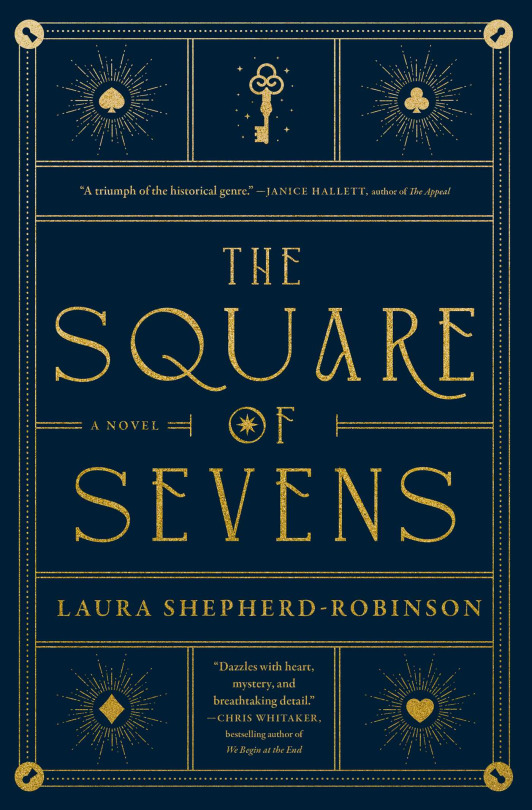
The Tainted Cup, Robert Jackson Bennett. A Sherlock Holmes-style political mystery about a woman investigating a murder in a truly original secondary fantasy world.
The Warm Hands of Ghosts, Katherine Addison. Haunting story about a woman looking for her missing brother who's trapped in a pocket realm on the battlefields of World War I.
The Square of Sevens, Laura Shepherd Robinson. An ingeniously twisted historical fiction thriller about a woman who was brought up as a fortuneteller in the 1730s recounting her past.


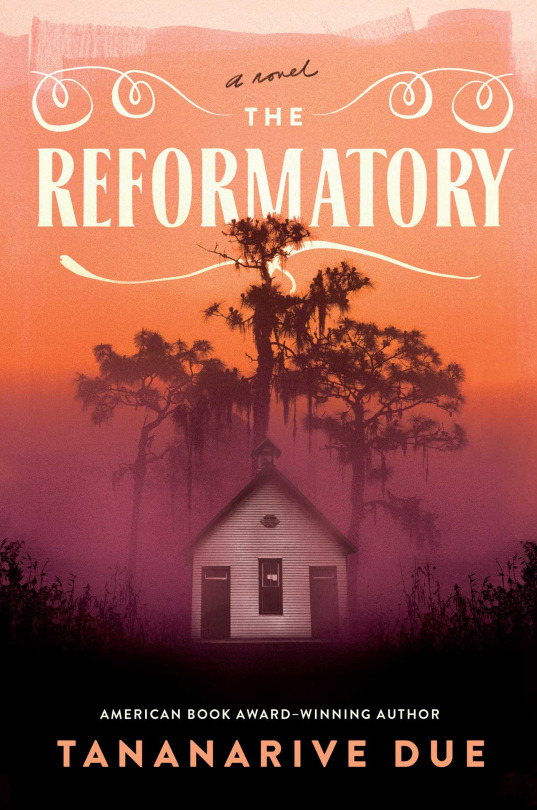
Someone You Can Build a Nest In, John Wiswell. Sapphic body horror gore monster romance that commits to the bit while also somehow being cozy.
Necrobane, Daniel M. Ford. Bisexual necromancer and all-around menace Aelis engages in pulp DnD like adventures as the protector of a rural village. Book 2 of a series.
The Reformatory, Tananarive Due. A Southern Gothic where the real horror is racism about a young boy sent to a prison reform school in the fifties.

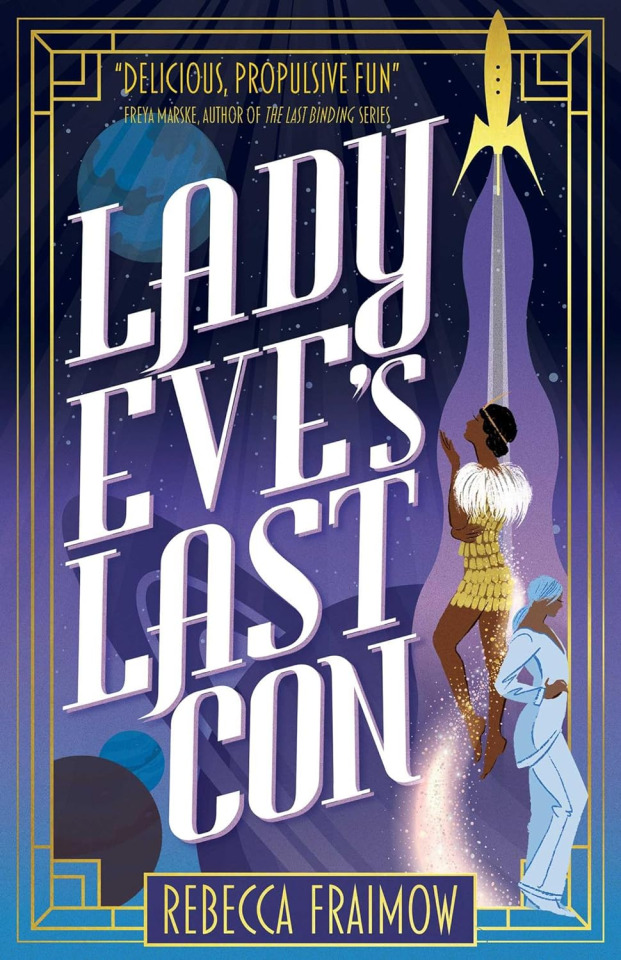

Triple Sec, TJ Alexander. Poly romance about a bartender falling in love with a woman—and then realizing that she's into the woman's partner too.
Lady Eve's Last Con, Rebecca Fraimow. Space opera romcom heist about a woman getting revenge on the man who jilted her sister.
Running Close to the Wind, Alexandra Rowland. An absolute souffle of poly pirate shenanigans. Strong character voice a la Gideon the Ninth that you'll either love or hate.

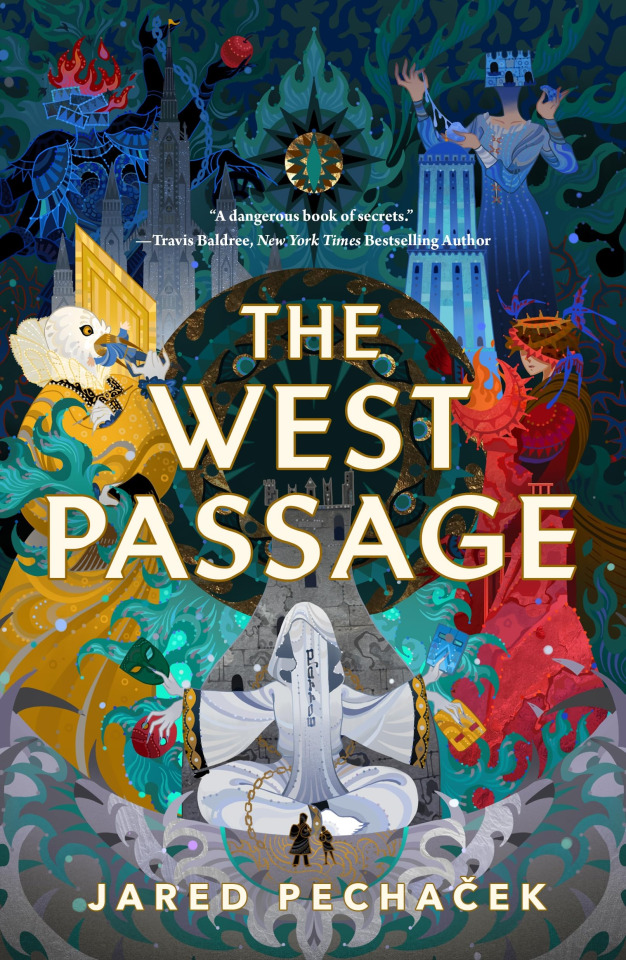

Rakesfall, Vajra Chandrasekera. Let me be honest, I'm not sure I have any idea what happened in this fever dream of a novel, but it was really good.
The West Passage, Jared Pechacek. A deeply strange and original monk book along the lines of Susanna Clarke's Piranesi.
The Scum Villain's Self-Saving System, Mo Xiang Tong Xiu. The most devoted hater of a popular webserial dies mad about it and ends up in the world of the book. A masterpiece of dramatic irony, made me feel insane for at least four months.


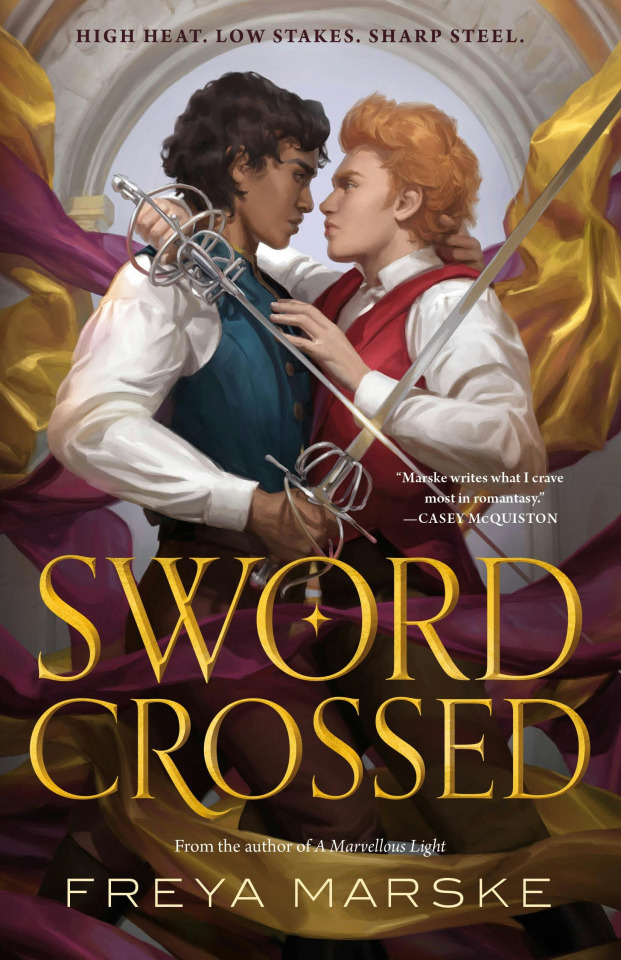
Asunder, Kerstin Hall. Another excellent installment in the guy stuck in your head genre in a wild and original fantasy setting.
Dark Breakers, CSE Cooney. A gorgeous collection of interlinked fairy tale novellas set around the same Gilded Age mansion.
Swordcrossed, Freya Marske. An absolute delight of a gay romcom with a large amount of detail about the fantasy wool industry.
69 notes
·
View notes
Text
nov 9 - nov 13 readings
hi! this is reaux (she/they)! as many of you know, BFP is slowly waking up and will be undergoing a full makeover in the coming months. in the mean time, to help get back into the pattern of posting and to continue to share resources, i want to start posting what i read each week!
without further ado, here is everything i've been learning from and engaging with so far just between last saturday night [nov 9, 2024] and right now [wednesday afternoon, nov 13, 2024]! i tried to post this on tiktok @/edgeofeden.17 (go check me out for cool political talks and reading recs!) with my reactions as well, but they said it violated community guidelines :(
journal article: The House on Bayou Road: Atlantic Creole Networks in the Eighteenth and Nineteenth Centuries
wikipedia: Plaçage
wikipedia: Signare
paperback book: Africans In Colonial Louisiana: The Development of Afro-Creole Culture in the Eighteenth-Century
article: Why Is Gen Z So Sex-Negative?: A prehistory of the Puriteen.
article: Policy-makers must not look to the “Nordic model” for sex trade legislation
article: Sex workers face unique challenges when trying to unionize: Anti-sex work stigma and labor status create roadblocks in sex workers’ fight against the industry status quo
wikipedia: Decriminalization of sex work
short youtube video: "Decriminalization of sex work does not mean the decriminalization of human trafficking."
short youtube video: What About Legalization? Decriminalization is the only solution
short youtube video: Dis/Ability and Sex Work Decriminalization
short youtube video: "Helping people through police is inherently coercive." - Gilda Merlot
wikipedia: Page Act of 1875
essay: Uses of the Erotic: The Erotic as Power by Audre Lorde
wikipedia: Erotic Capital
long youtube video: KATHERINE MCKITTRICK: Curiosities, Wonder, and Black Methodologies // 09.14.20
journal article: Black life is Not Ungeographic! Applying a Black Geographic Lens to Rural Education Research in the Black Belt
journal article: Black matters are spatial matters: Black geographies for the twenty-first century
journal article: Unspoken Grammar of Place: Anti-Blackness as a Spatial Imaginary in Education
short video: Chicago Works | Andrea Carlson: Shimmer on Horizons
zine: Evaluating What Skills You Can Bring to Radical Organizing
diagram + workbook?: The Social Change Ecosystem Map (2020)
essay: How to Build Language Justice
guide: Anti-Oppressive Facilitation for Democratic Process: Making Meetings Awesome for Everyone
radical resource library: Center for Liberatory Practice & Poetry
short essay: The Short Instructional Manifesto for Relationship Anarchy
essay/blog post: Access Intimacy: The Missing Link
i think that's everything? whew. let's see how i finish off the week! if you need PDFs for anything i didn't directly link, lmk and i'll find a way to get it to you. might upload it to my google drive or something!
--
topics: Louisiana Creole history + heritage, women of color + erotic capital, sex work decriminalization, Black geography, revolutionary organizing, language, relationship anarchy, disability, intimacy
#reaux speaks#resources#louisiana creole#creole#women of color#audre lorde#decriminalization#geography#landscape painting#organizing#community organizing#language#disability#accessibility#intimacy#relationship anarchy#anarchism#marriage#academia#political education#zine#skills
37 notes
·
View notes
Note
Hello, I’ve a part asoiaf part medieval history question. So despite the strict gender roles, we know that women (at least noble women) can enjoy some “male” activities like horse riding and some kinds of hunting (Cat says Arya can have a hunting hawk). Are there any other “male” activities women can partake too without being judged about it, or even encouraged to do so (both in Westeros and real world)?
So as medievalists and historians of gender have pointed out, ASOIAF is far more restrictive for women than actual medieval Europe. I'm actually going to leave aside the situation of noblewoman for a second, because the vast majority of women were not nobles and their experience of gender would be radically different.

What counted as "male activities" for example would vary enormously by location (rural vs. urban) and thus occupation (farmer vs. artisan). Among the peasantry, while men tended to work in the fields and concentrated on cereal-crop production and women tended to do the manifold work of maintaining the home, the reality is that the irregular nature of agricultural labor meant that in times of high demand (especially spring sowing and autumn harvest) it was a matter of survival for every single member of the household to work in the fields. So women absolutely knew how to work a plow, and swing a scythe.
As for the urban worker, while there was also a high degree of gender segregation by occupation and guilds could often be quite misogynistic when it came to trying to masculinize trades (especially those involving higher rates of capital investment), it was also true that the entire household was expected to contribute their labor, so that wives, daughters, collateral female relatives, and female servants picked up the trade alongside their male counterpart. Moreover, as biased towards men as guilds could be, they were even more committed to the principle that guild businesses were family businesses, and so in situations where a master artisan had only daughters or died childless or died with underage heirs, it was absolutely routine for guilds to admit daughters and widows as guild members, indeed usually at the rank of master, all so that the business could remain in the same family. This is why medievalists can point to so many examples of women who worked in skilled trades, often at a high level.
That's what I think GRRM's portrait of medieval society is missing: an entire world of women in business, working elbow-to-elbow with men to make a living.
As for noblewomen, part of the difficulty is that a big part of being a noble was not doing stuff - not working for a living, chiefly - and instead engaging in leisure activities as much as possible. And women were very much a part of those activities (indeed, for many of them the point was to mingle with eligible people of the opposite gender), whether that's feasting, dancing, hunting, hawking, theater and other entertainments, fireworks, tourneys and jousts, etc.
However, women were also engaged in the main "occupations" of the nobility - estate management and politics - way more than GRRM really takes note of. To begin with, as even GRRM acknowledges to some extent, the lady of the house was expected to take an active role in running the house, which meant managing servants, keeping track of accounts payable and receivable, making sure the supplies arrive on time and in the right quality and quantity, keeping an eye on maintenance and repairs (with the help of servants, natch), etc.
Given that even the manor houses of the nobility were units of economic production, the lady of the house would also be responsible for oversight of how the house was doing with its pigs, goats, chickens and pigeons and geese, bees (because beeswax and honey were really important commodities), sheep, and so on, and what kind of figures they were pulling down at the mill and the weir, and so forth.
As medievalists have known for a long time, this list of duties got even longer whenever the lord of the house was away at war or on business, when the lady would be expected to pick up all his work too - which means making sure the rents and taxes get paid, deciding which fields to distribute manpower to and when, dealing with legal disputes in the manorial court, and so on. And if the war came home, the lady of the house was expected to lead the defense of the castle and there are many, many examples of noblewomen who had to organize sieges that lasted months and even years.
However, we also have to consider the impact of inheritance by birth and the inherent randomness of sex at birth - as much as they tried to avoid it, plenty of noble houses ended up with female heirs or in the hands of widows. Most of the time in most countries, women could and did inherit (or at the very least their male children and relatives could inherit through them) titles and fiefdoms, and while their husbands would often take on overlordship de jure uxoris, unmarried women and widows very much exercised their authority as the Lady or Baroness or Countess or whatever, and history is also full of women who were extremely influential in medieval politics and backed up their influence by any means necessary.
#history#medieval history#feudalism#history of gender#westerosi feudalism#westerosi gender roles#asoiaf#asoiaf meta#race for the iron throne#historical analysis
243 notes
·
View notes
Note
Reverse unpopular opinion: radical feminism
Radical feminism starts from what I think are solid philosophical fundamentals. One: that the relationship between the sexes is based on material conditions, and that absent a way to eliminate or alter those conditions, there are dynamics that you cannot wish away just by tinkering with culture and legal systems around the edges. The class of people who engage in the work of gestation and (for 99% of human history) nursing children really are going to occupy a fundamentally different position in society than the class of people who do not do that. And because of the importance of reproduction to keeping society going, sex-based oppression is not only a really common pattern in human cultures, it's also a really hard one to escape. Much like the lord extracting surplus from the rural peasantry, there are different cultural and historical particulars you might find in any single place, but the general pattern of patriarchy, like the general pattern of controlling the means of agricultural production, is going to have common features throughout the world and throughout history.
This is not purely a quaint historical phenomenon, either, though; given that this differential relationship to reproduction has been around since long before agriculture, it is a pattern even more deeply ingrained in human societies than unequal distributions of land and capital; and given that the first generation of feminism dates from around the early 20th century, and some of the most important political gains from feminism postdate the birth of many people reading this post, the idea that feminism is over, or has reached some culmination point, or has passed its peak usefulness, or has even come close to uprooting deeply entrenched patterns of patriarchal oppression (nevermind that the fundamental biological dynamic that helped create those patterns is still largely in place!) is laughable, even in progressive-by-global-standards societies like those in Europe and North America.
On top of this there are a lot of contingent cultural patterns that radical feminists observed in the 70s and 80s which I think were broadly accurate; second-wave feminism correctly noticed there was a more fundamental shift in perspective that society needed besides just giving women the right to vote, and this shift in perspective was what "women's liberation" more broadly was aimed at covering.
I also think that the ultimate goal of radical feminism, as at least some radical feminists have expressed it, is laudable: that of the "elimination... of the sex distinction itself," so that "genital differences between human beings would no longer matter culturally." It's utopian as hell, and it is also in tension with the idea that the role of the reproductive class of humans is special, but utopian ideas often call on us to radically reimagine the future (and radically interrogate the present), and I think that, in general, that is an excellent thing.
83 notes
·
View notes
Note
i'm about 6 months on T and i really like the things that are happening to me, but i hate how "political" being trans is right now. i keep overthinking everything, like "maybe i should have waited" or "this was a dangerous thing to do right now."
but if society wasn't weird about trans people i'd embrace my transition wholeheartedly. i love the body hair especially haha. i know this is kind of a broad ask, but how do i stop feeling so scared? or i guess, how to stop caring about how other people are seeing me? do you have any tips or advice?
I live in a super trans-friendly area, and work in a super trans-friendly field/encouragement (education/super progressive nonprofit orgs) so I am perhaps not the best person to ask, unfortunately!
I will still offer that my experience has been that even my conservative family, and conservative people I have worked with, don't really want to raise a fuss about it. These are folks who are maybe more "fiscally conservative" types, or libertarian "do what you want & let me hate you for it in peace" types, both more typical of rural PNW. But even my bornagain MAGA uncle who likes to pick fights with me on everything else just sort of, like, avoids the topic & goes with it. I think a lot of it has to do with keeping the peace among more accepting family (like his parents/my grandparents), and a lot of it has to do with a genuine desire not to lose relationships altogether. I think a lot of people really do re-evaluate some of their beliefs when it comes to real life, high stakes interactions and relationships.
and even before T, I was passing as a man in conservative areas. People didn't want to see a trans person when they saw me, so they just... didn't. they chose to believe I was a boy or a young man, maybe a little weird, but not in any way that was their business. I had an extended conversation with an older veteran in a conservative area where he asked me if I was military, referred to me as a young man, etc. and I was very much pre-T (and boy I was NOT masculine in any way but clothes & hair, I promise you). people see what they want to see, and they typically do not want to see trans people, even if it does occur to them that trans people exist at all.
again, I've been really lucky in terms of where I am and who I spend my time around! I know my experiences are not remotely universal, and a lot of this also has to do with my being young, thinner/average weight, and white. just to say that even in a more polarized time, the average person simply does not want to engage in confrontation any more than you do.
all that said, I'd love to hear from folks in the notes who can add some of their experiences, perspectives, and words of wisdom!
27 notes
·
View notes
Note
Marx and his disciples like to throw around the words “opportunist” and adventurist” derogatively. Is there any nuance to those words beyond meaning “not left enough” and “too far left”?
yeah. an 'opportunist' is someone who is willing to abandon all political and theoretical principles to follow the path of least resistance. e.g. someone like glenn greenwald, a self-proclaimed socialist who will go along with any right-wing trend that he thinks might get him attention while dressing this naked clout-chasing up in the language of marxism. an 'adventurist' meanwhile is a member of a small isolated group with no broad base that engages in action inappropriate for its circumstances--for example, armed urban guerilla warfare without the support of the urban proletariat, or protracted people's war without the support of the rural peasant working class. e.g. peru's sendero luminoso, who brutalized the peasantry and especially the indigenous peasantry in an ill-fated attempt at revolutionary action in the absence of any revolutionary situation
381 notes
·
View notes
Note
"If you are tired of seeing people outside of the imperial core talk about how they hate all USAmericans, then step the fuck Up and work toward building a movement that actually challenges this fucking empire!" I'm disabled, unemployed, I struggle with interpersonal communication and am stuck living with liberal parents in a rural area. I still want to help, but all of the advice I keep hearing on here has no real way of applying to me. I can't join a leftist movement because none of them have presence in my area, I can't start a new one because of my struggles with communication. Please tell me, what can I do?
Even if there is no group active in your immediate community, joining an org you believe in and just sitting in on zoom calls is a step forward from nothing. (If you feel lost, I talk about some noteworthy orgs at the bottom of this post!)
Beyond that, a lot of orgs (or functional ones, at least) need people to do the kind of "boring" administrative work that doesn't get publicized so much, and can easily be done remotely! It may not sound exciting, but there are important spreadsheets you can help manage, if you can find the people creating them.
Further, whilst I think a lot of US leftists overestimate the role of the artist in revolution, propaganda is absolutely vital and can be done remotely. From copy editing to web design, most tasks that go into building a movement's online presence (and a large portion of the ones that go into manufacturing print media) are ones you may be able to take up--even if you don't consider yourself talented in any creative fields! (You could also go at it alone, but keep in mind that a party's newspaper is almost certain to have more impact on actual political organizing than an individual's blog or YouTube channel.)
Lastly, even if you can't contribute to any tasks directly at the moment, just joining in conversation with an active org will benefit both you and them! You because conversation with an active political group will help you understand such work better for when the time comes that you can contribute more directly; and them because communist orgs here absolutely need to learn how to reach and engage with disabled comrades better.
I hope this helps some. Of course, these are only general suggestions--any decent org will be able to tell you in greater detail what you can do to help the movement.
15 notes
·
View notes
Text
Australian Tour
Monday the 21st of October
The King and Queen travelled to Canberra today.
Under a cut as this is long
The King and Queen arrived in Canberra at 11.45am.
There was a Welcome to Country ceremony and a Smoking Ceremony at Defence Establishment Fairbairn upon their arrival in Canberra. The King and Queen were greeted by Ngunnawal Elder Aunty Serena Williams.

The King and Queen went to the War Memorial, where they laid a wreath at the War Memorial and toured the separate For Our Country memorial for indigenous soldiers (I can't find any pictures of this last event). They were shown through the For Our Country memorial alongside Aunty Lorraine Hatton OAM, an Australian Army veteran and Quandamooka Elder of the Noonuccal and Ngughi tribes in Southeast Queensland.

They then greeted the public outside the War Memorial.
The next stop was Parliament House, where The King reviewed members of the ADF on his arrival and The King and Queen attended a reception which included another Welcome to Country ceremony by Ngunnawal elder Aunty Violet Sheridan. The King and Queen signed the visitor's book at Parliament House (and also at the War Memorial earlier). At the reception, the King and Queen met two Australians of the Year, Professor Georgina Long and Professor Richard Scolyer. At some time during their time at Government House they met members of the public in the forecourt.


The Queen left to change her outfit and attend a solo engagement, a round table discussion with domestic violence advocates at Government House, hosted by the Governor-General Ms Sam Moyston.

King Charles received the Prime Minister and Leader of the Opposition at Government House. During this time he signed the royal warrant for the use of The Great Deal of Australia by the Governor-General.

Later in the afternoon, The King and Queen planted a pair of snow gums at Government House in Canberra


The King then visited the CSIRO's National Bushfire Research Laboratory. The King watched a "Pyrotron" demonstration which replicates a bushfire in a 29-metre long combustion wind tunnel, and then saw a 'burn over drill' outside, where five volunteer firefighters of the ACT Rural Fire Service demonstrated how firefighters stuck in the truck in the middle of a firestorm would survive


The Queen visited the charity GIVIT in a room at the Australian Botanic Gardens.

The King and Queen then visited the National Botanic Gardens. The King undertook a special tour of the Banksia Garden by Beverly and Kain Ardler from the Wreck Bay Aboriginal Community. while The Queen met with schoolchildren learning about seed pods before re-joining the King. The King planted a tree and they both walked through the Rainforest Gully before returning to Sydney.

It was a full day of events for both of them.
I am not mentioned the protestors, especially one very rude and disrespectful protestor (described as a "one-off idiot" by the indigenous elder who did the Welcome to Country ceremony at the reception at Government House, and her act was described as 'political exhibitionism' by a former Prime Minister), as they are not worth my time or attention.
36 notes
·
View notes